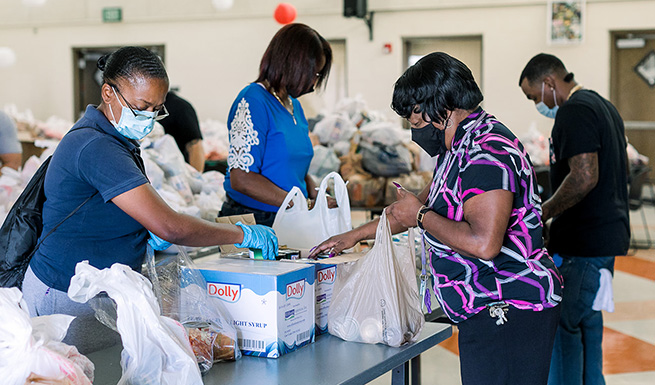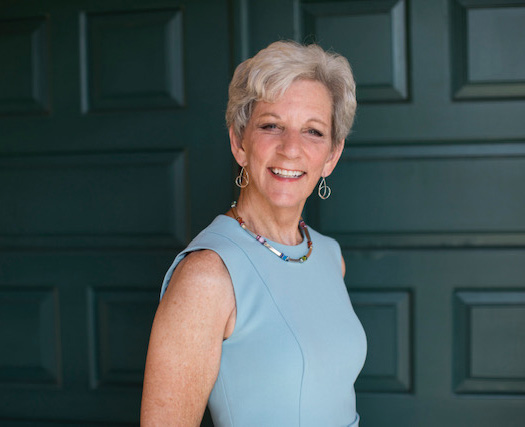About 52% of people age 55-plus said they do not have a will, trust, or other key estate planning documents. That number increases to about 73% for people ages 35-54.
With numbers so high, it’s not surprising that the fear of mortality during the COVID-19 pandemic has led to an escalation in estate planning discussions and decisions across the estate planning industry.
Below are some of the most common ones, which should help guide you and your family members during these challenging times.
Common Estate Planning Questions During COVID-19

Please ask yourself:
Do you know where your estate planning documents are located? Have you informed your children or closest next of kin where they are?
Next, when was the last time you actually looked at those documents? Do you really understand the provisions of those documents? Do the provisions of those documents reflect your current intent?
How old were your children and/or grandchildren when you signed those documents – and how old are they now? Did you even have children or grandchildren when you signed those documents? Are your children now grown-up? Are they responsible? Are there any recent issues that should be addressed – such as a drug problem, a divorce, mental illness, a disabled child or grandchildren?
What about your situation: Are you still married, or do you have a significant other? Have you purchased a residence with that other person? How did you take title? How can you provide for that significant other, but also provide for your children? This may be tricky, but these issues must be considered in the planning.
Should you leave all your assets to your spouse and trust that spouse to distribute the estate as you planned – if you are the first to die? This is especially relevant when there is a second or third marriage with different children.

Have you inherited millions from Aunt Sally? (Hopefully!) Should you retain it as your separate property or commingle it with your community property? California is a community property state, but an inheritance, a gift or what you bring to the marriage is characterized as your separate property.
A key question: Who should be named as successor trustee of your trust and executor of your Will? If you name both your children as co-trustees, how well do they get along? In other words, will it work? What are your options? Would a neutral professional be a better designation than any family member? Remember, acting as the successor trustee is a job, not an honor.
Trust funding: are your major assets (other than retirement accounts) titled in your trust to avoid an expensive and time consuming probate court procedure when you die? Did you refinance your Park Laurel home and the lender transferred title out of your trust?
Do your documents cover incapacity as well as death? Do you have a current Advance Health Care Directive and a Power of Attorney for Financial Matters (to cover your non-trust assets such as your pension, annuities, retirement accounts)? Have you given a copy of your Advance Health Care Directive to your primary physician so a copy can be scanned into your medical records? Please take care of this.

Have you made arrangements for your adorable dog or cat?
What about your beneficiary designations on retirement accounts, annuities, life insurance? Check them – and always have primary and contingent beneficiaries. This is the biggest mistake I discover after a client dies.
Do you have a document locator listing your current professional advisors, user names, passwords, addresses and phone number of your beneficiaries?
Do you have accounts in joint tenancy accounts with a child “for convenience only”? Do you really want that entire account to go to that person alone when you die – or do you want it to be part of your estate?
I will bet you have old estate planning documents sitting around somewhere! My advice: shred them! Only retain the latest version of each document – so there is no confusion.

Do you have prepaid funeral arrangements so your family doesn’t have to make those last minute, stressful, and expensive decisions?
Should you create a list of items of personal property – or label the items? An item may not be valuable, but for sentimental reasons, it’s important that a certain person inherit it.
In your documents, always ask yourself the “what if’ question. What if this beneficiary predeceases you? Where should that bequest be distributed? If that person can’t act as the trustee, you should name an alternate. You never know…
Charitable Giving

Let’s take a minute and talk about giving – to your loved ones and to nonprofits that are in such need these days.
My guess is that there is someone you know who is really hurting during this pandemic – maybe out of a job, lost a business, can’t afford a tutor or caregiver for his/her children. If you can afford it, why not help them now with a “warm hand” rather than with a “cold hand” after your death?
Remember, you can give up to $15,000 each year to as many people as you wish without reporting the gifts to the IRS. You don’t pay tax; the recipient doesn’t pay any tax.
You can also give more than the annual exclusion amount, but you are required to file a gift tax return then and that amount over $15,000 is deducted from the$11,580,000 exemption per person in 2021. For most individuals, that’s not an issue, but keep in mind that we don’t know what the future tax laws will be.
Common Philanthropy Questions During COVID-19

Every day, you probably receive solicitations from nonprofits. They all are in great need these days. How do you decide?
Ask yourself certain questions: What are you passionate about? Can you afford the donation? Where will your dollars make a significant difference? Should your donation go to the local chapter or to national? Be very specific and make sure the charity’s name is correct.
If you are 70 1/2, you probably have heard of a qualified charitable distribution – transferring your RMD right from your IRA to a charity or charities up to $100,000 a year. You pay no tax; however, you also don’t get a tax deduction. With the standard deduction, this may work the best.
Another option for gifting to a nonprofit during your lifetime is to transfer appreciated stock, or appreciated property – and let the charity sell that asset. There are significant tax benefits to you in giving this way.
If you want to do legacy giving to nonprofits, the best way is to name them as beneficiaries of your retirement accounts (not your Roth IRAs). Remember, the nonprofits pay no tax, people do.
Or the old-fashioned way is to provide for your individual or charitable beneficiaries in your will, trust, or as a beneficiary on your life insurance by stating an amount or a percentage of your estate. That works! The last piece of advice: Be sure to consult with your trusted, experienced professional advisors – and plan ahead!
Is this the right time to set up a donor-advised fund at The San Diego Foundation or add to your existing fund? What was the last time you reviewed your Agreement with The Foundation?
Contact The San Diego Foundation to take the next steps.

Nancy A. Spector
Certified Specialist, Estate Planning, Trust & Probate Law



